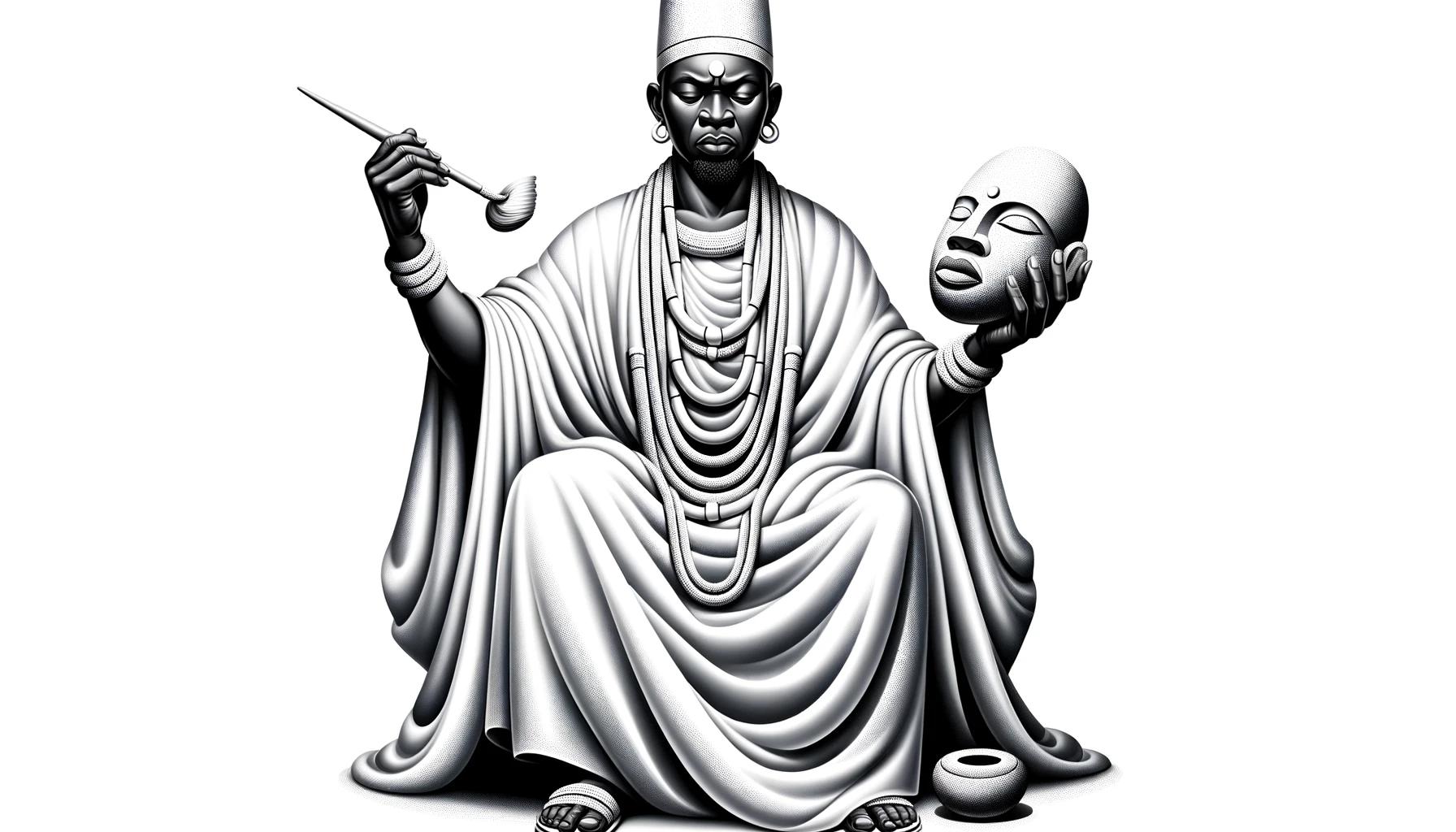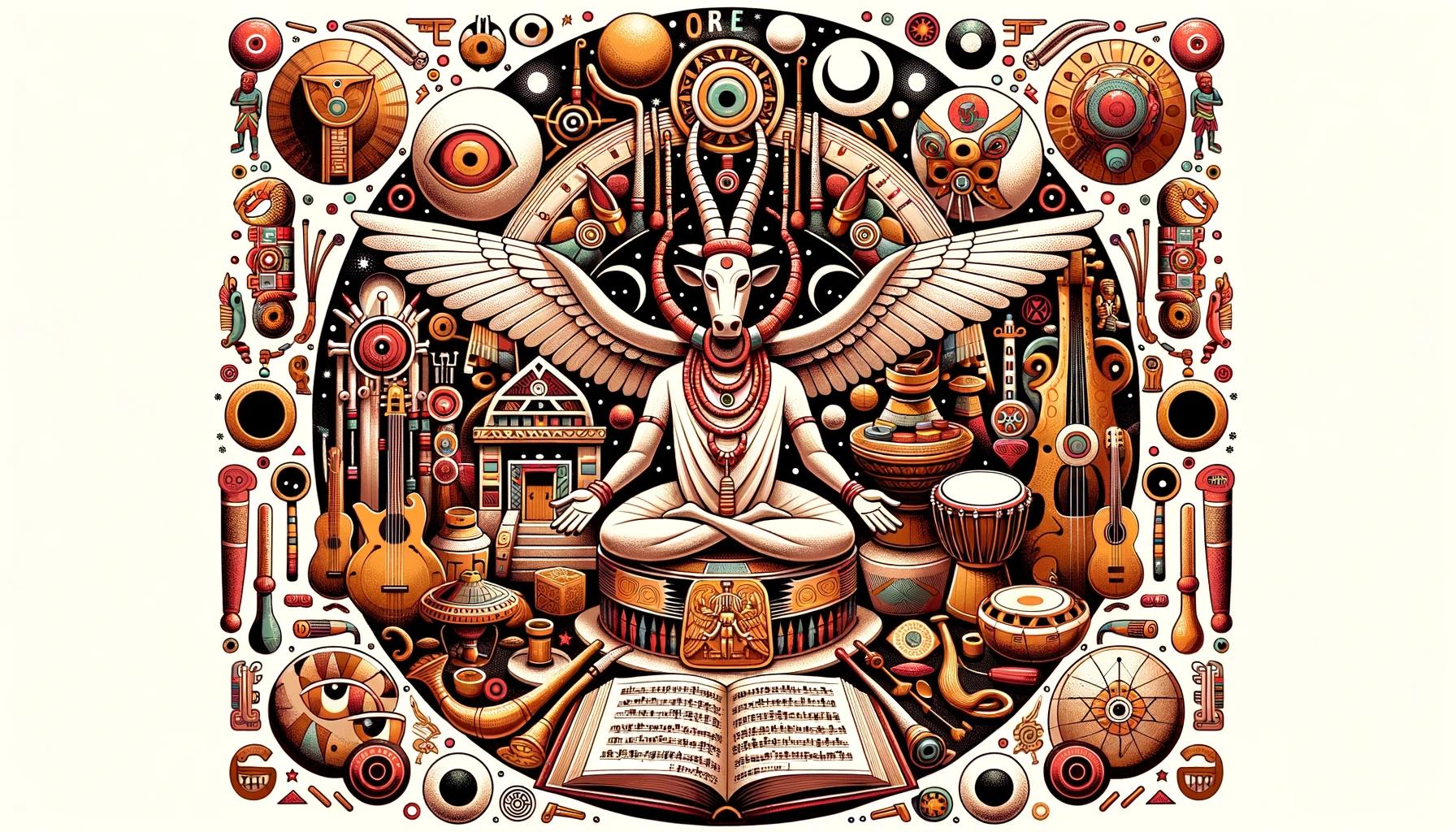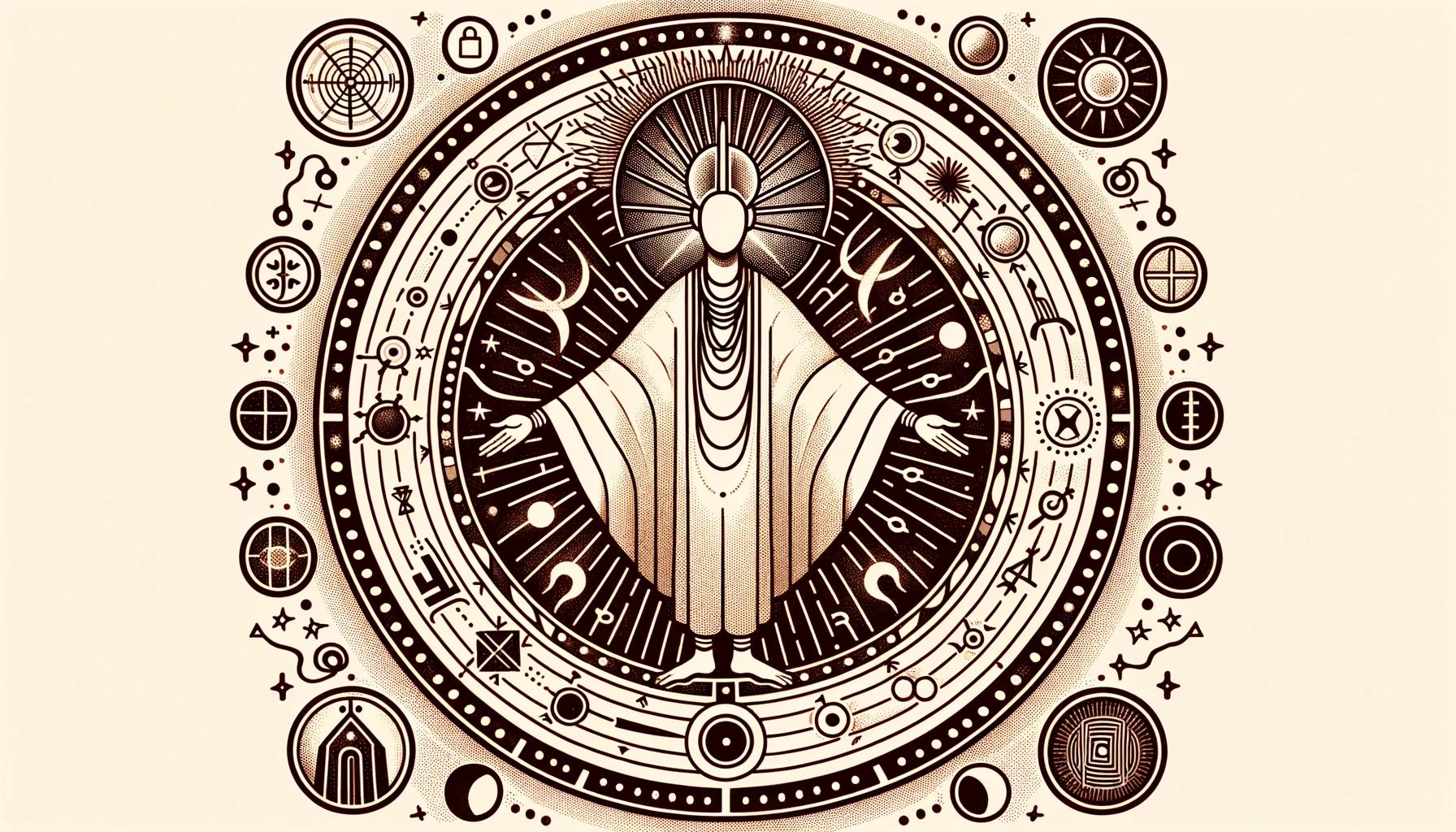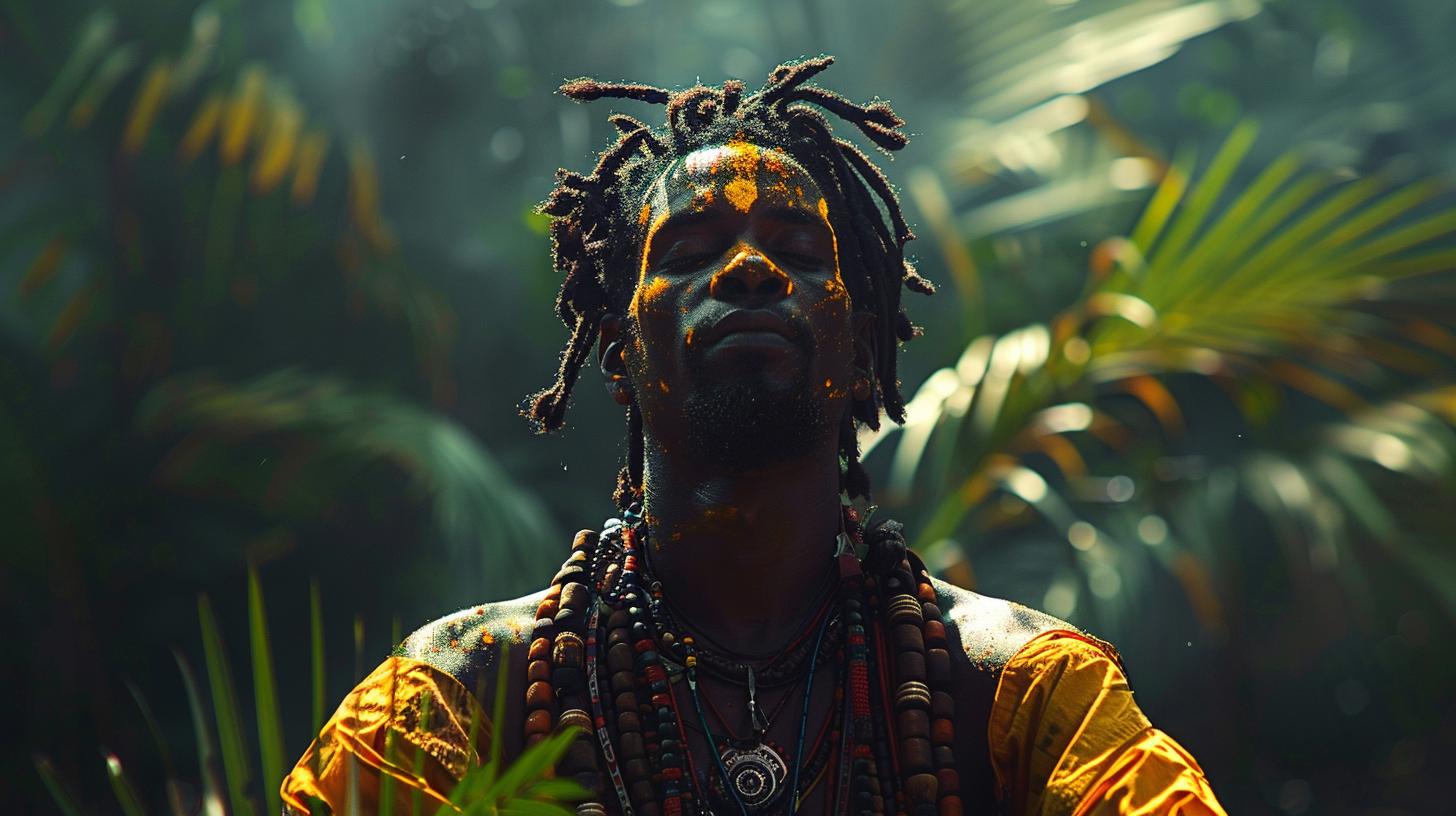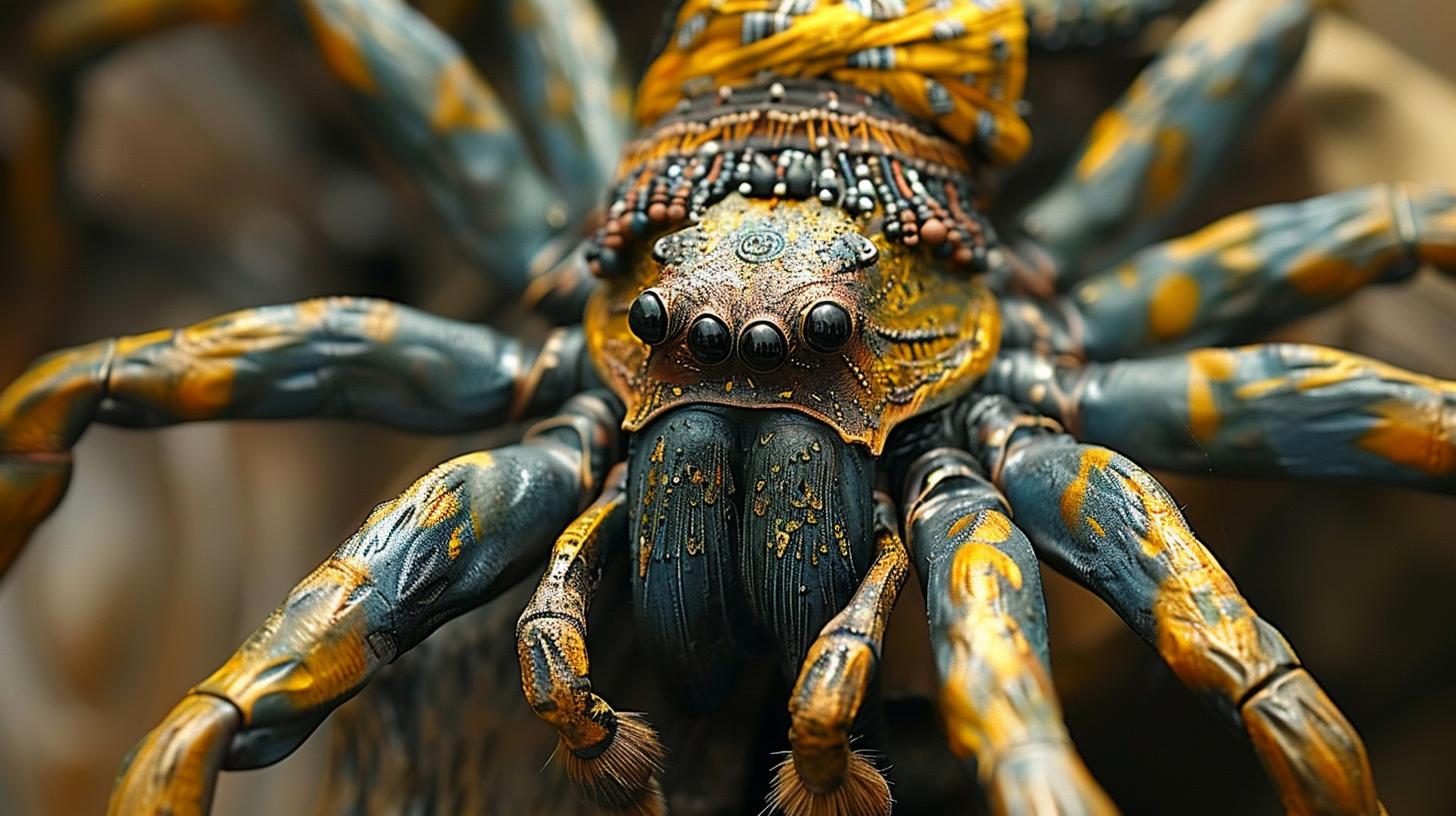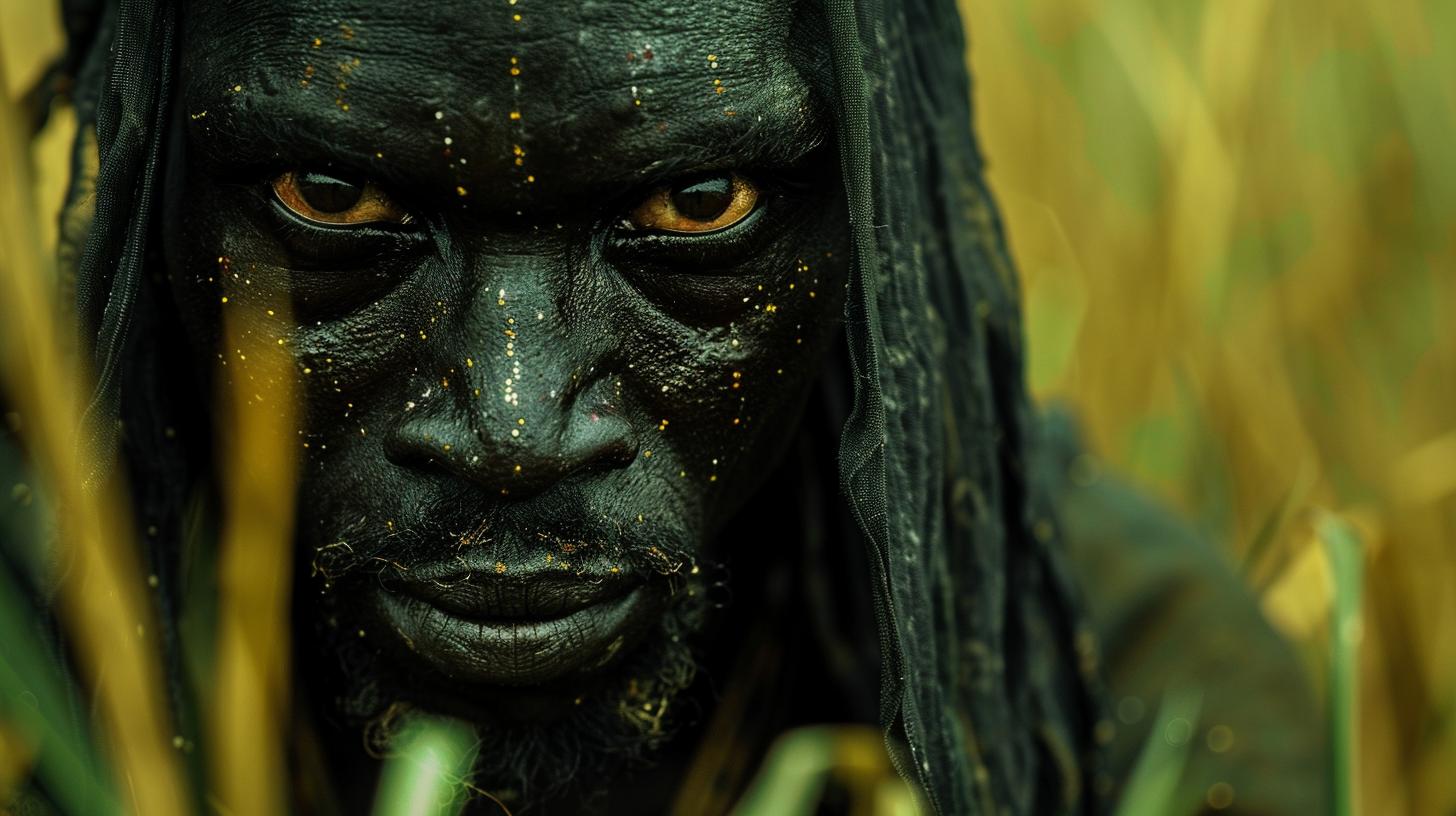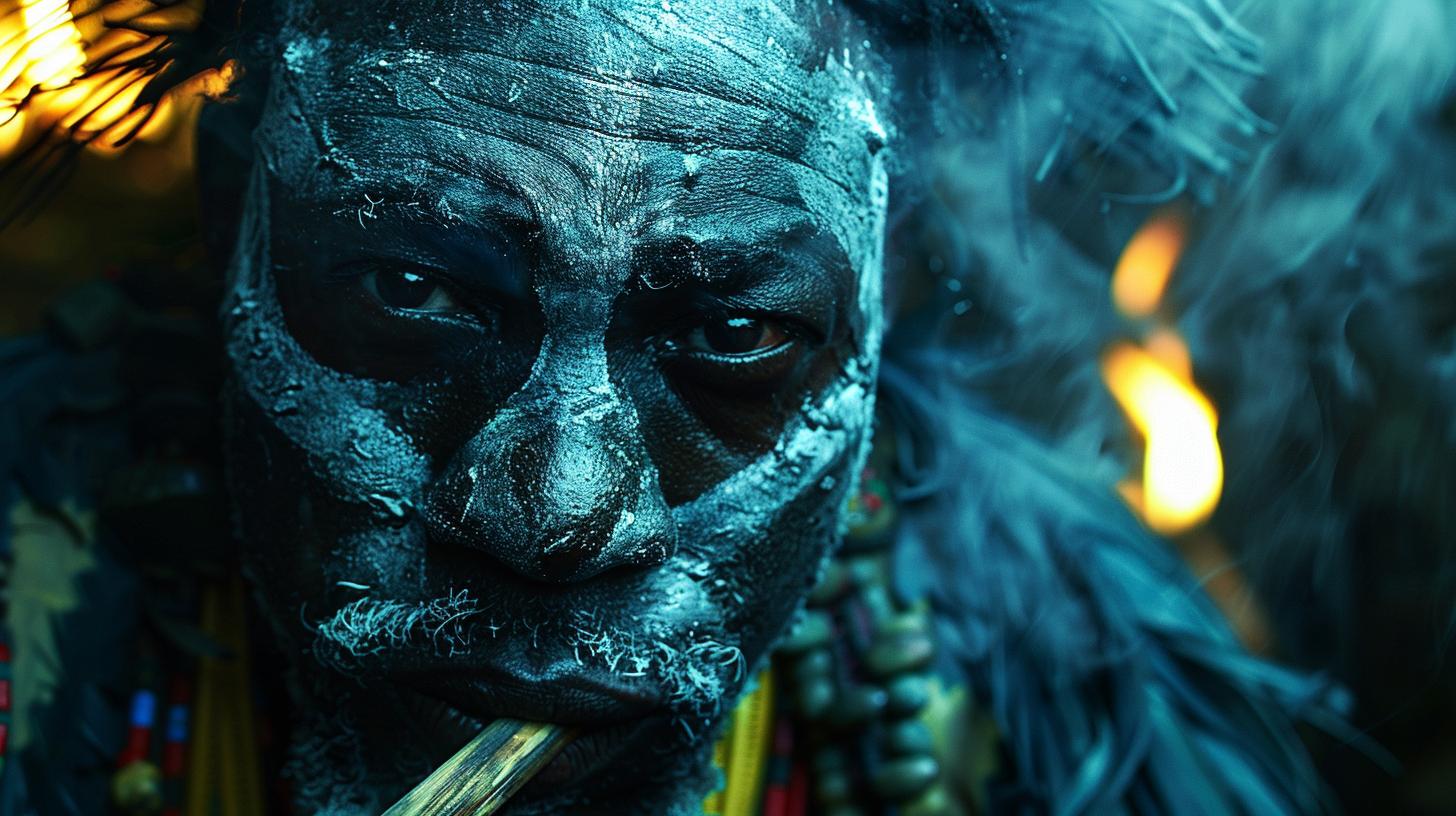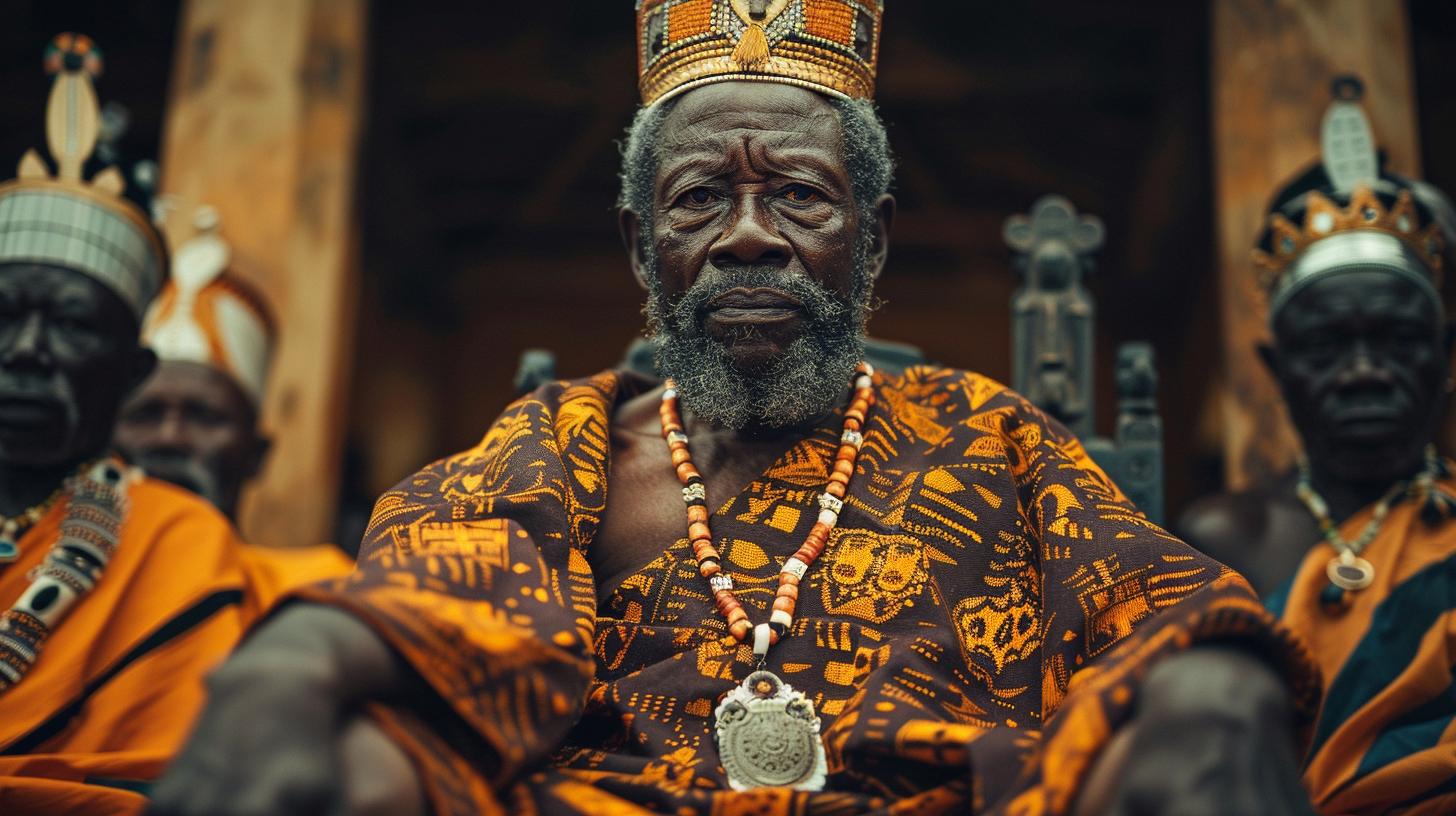West African Mythology: Discover the Rich Tales and Deities of West Africa
West African Mythology encompasses a diverse array of deities and legendary creatures from various West African countries. From the Aziza of Benin to the Nommos of Mali, these myths and beings reflect the rich cultural heritage of the region.
The influence of West African mythology extends to traditional beliefs, literature, and contemporary interpretations.
List of West african Gods and Goddesses
Overview of West African Mythical Creatures
The mythical creatures of West Africa form a diverse and intriguing part of the region’s folklore. From the mysterious Aziza of Benin to the legendary Ninki Nanka of Gambia, the tales of these creatures have fascinated generations.
Aziza of Benin
The Aziza are enchanting beings said to dwell in the forests of Benin. These fairy-like creatures are believed to impart both practical and spiritual knowledge to those they encounter, enhancing the wisdom of individuals.
Ninki Nanka of Gambia
Legends speak of the Ninki Nanka, a dragon-like creature inhabiting the swamps of Gambia. Its existence has piqued the interest of researchers and myth hunters, adding an air of mystery to the waterways of the region.
Adze and Asasabonsam of Ghana
In Ghana, the Adze, a vampiric entity capable of transforming into a firefly and possessing humans, lurks in the shadows. Alongside the Adze, the Asasabonsam, a forest-dwelling vampire preying on the bold, instills fear in those who venture into its domain.
Nommos of Mali
Mali’s myths revolve around the Nommos, amphibious beings depicted as part fish and part human, descended from the heavens to create an aquatic haven. Their origins and purpose continue to intrigue storytellers and listeners alike.
Hira and Zin of Niger
Within the epics and folklore of the Songhai people in Niger, tales of the fearsome Hira, a mythical monster, abound. Meanwhile, the Zin are water spirits residing in rivers and lakes, adding depth to the spiritual beliefs of the region.
Deities in West African Mythology
Orishas of Nigeria
In Nigerian mythology, the Orishas are a pantheon of deities with distinctive powers and attributes. They are revered in the Yoruba religion and are also significant in practices like Candomblé, Santería, and Vodou.
Abiku and Egbere of Nigeria
The Abiku are believed to be children from the spiritual realm who die prematurely, causing grief to their families. Egbere, on the other hand, are malevolent spirits dwelling in the forests, posing threats to humans.
Anansi of Ghana
Anansi, the trickster god in Ghanaian folklore, is depicted as a spider possessing cunning and wisdom. His stories illustrate moral lessons and insights into human nature.
Influence of West African Mythology on Culture and Religion
The rich tapestry of West African mythology extends its influence beyond tales and legends, permeating deeply into the cultural and religious practices of the region. Here, we explore how the myths and deities from West Africa have shaped and continue to impact various aspects of society.
Yoruba Religion and Orishas
The Yoruba people of Nigeria have a strong connection to their traditional religion, which encompasses a pantheon of Orishas. These deities serve as intermediaries between humans and the supreme being, influencing rituals, ceremonies, and spiritual beliefs.
Impact of Myths on Traditional African Religions
Across West Africa, the myths and stories passed down through generations have played a significant role in shaping the beliefs and practices of traditional African religions. These tales often carry moral lessons and spiritual guidance, forming the foundation of cultural norms and values.
Spiritual and Cultural Significance
West African mythology holds profound spiritual and cultural significance, serving as a source of identity and cohesion for communities. The stories and beliefs associated with the region’s mythology provide a framework for understanding the world, communicating ancestral wisdom, and fostering a sense of belonging.
Legends and Folklore in West African Mythology
West African Mythology is rich in stories of legendary beings and supernatural occurrences that have been passed down through generations. These myths and folklore provide insights into the cultural beliefs and traditions of different ethnic groups in the region.
Stories of Trickster Gods
The myths of West Africa often feature trickster gods who use their wit and cunning to outsmart others. These deities, such as Anansi in Ghana, are known for their mischievous behavior and their ability to challenge societal norms through their actions.
Role of Trickster Gods in Society
- Trickster gods serve as a reflection of human nature, highlighting both the light and dark aspects of humanity.
- Through their actions, these deities teach valuable lessons about morality, ethics, and the consequences of one’s actions.
- The stories of trickster gods often convey cultural values and norms, providing a framework for ethical behavior.
Tales of Supernatural Beings
Supernatural beings play a significant role in West African mythology, with creatures like the Adze and Asasabonsam in Ghana captivating audiences with their vampiric tendencies and mystical powers.
These beings embody the fears and mysteries of the natural world, often serving as cautionary tales for those who dare to venture into the unknown.
Characteristics of Supernatural Beings
- Supernatural beings are often depicted as powerful entities with the ability to shape-shift and manipulate their surroundings.
- These creatures blur the line between reality and fantasy, challenging beliefs about the limits of human understanding.
- The tales of supernatural beings highlight the interconnectedness of the physical and spiritual realms in West African cosmology.
Traditional Beliefs and Practices
Legends and folklore in West African mythology are deeply intertwined with traditional beliefs and practices, shaping the rituals and ceremonies of local communities.
These stories serve as a bridge between the past and the present, preserving cultural heritage and fostering a sense of collective identity among the people.
Continuation of Oral Tradition
- Oral storytelling remains a vital aspect of West African culture, with elders passing down myths and legends to younger generations.
- Community celebrations and festivals often incorporate elements of West African mythology, reinforcing the importance of these stories in everyday life.
- Traditional healers and spiritual leaders draw upon the wisdom of myths to guide their practices and provide a sense of spiritual connection for their followers.
Comparison with Other Mythological Traditions
Common Themes in African Mythology
African mythology shares common themes with other mythological traditions around the world, highlighting universal aspects of human culture and belief systems.
Some common themes include:
- Creation Stories: Many African myths feature creation stories that explain the origins of the world and humanity.
- Heroic Figures: Like in other mythologies, African myths often revolve around heroic figures who undertake epic quests and face challenges.
- Supernatural Beings: African mythology, similar to other traditions, includes a wide range of supernatural beings such as gods, spirits, and monsters.
- Moral Lessons: Myths from Africa, like those from other cultures, often convey moral lessons and cultural values through storytelling.
Differences and Similarities with Western Mythologies
While there are similarities between African mythology and Western mythologies, there are also notable differences that reflect the diverse cultural backgrounds and histories of these traditions.
Some key differences and similarities include:
- Concepts of Deity: African mythology often features a pantheon of gods and spirits with specific attributes and roles, while Western mythologies may focus on singular deity figures.
- Geographical Influences: Western mythologies are often influenced by European and Mediterranean landscapes and cultures, while African mythology reflects the ecology and beliefs of the African continent.
- Storytelling Styles: The storytelling techniques and narrative structures in African mythology differ from those in Western traditions, showcasing unique oral traditions and performance practices.
Global Influence of West African Mythology
West African mythology has had a significant impact on global culture and has influenced various artistic, literary, and cultural movements worldwide.
The vibrant characters, symbolic motifs, and intriguing narratives from West African myths continue to inspire creative works and spark scholarly interest in mythological studies.
Preservation and Transmission of West African Myths
Preservation and transmission of West African myths play a crucial role in keeping the cultural heritage alive through generations.
Oral Tradition and Storytelling
Oral tradition is a fundamental method of preserving West African myths, with storytellers passing down tales to preserve cultural knowledge.
Role of Mythology in Education and Entertainment
Mythology serves as an educational tool, teaching morals and cultural values to the younger generation while providing entertainment through captivating narratives.
Contemporary Adaptations and Interpretations
Modern adaptations and interpretations of West African myths ensure the relevance and continuity of these stories in contemporary society.
Academic Studies and Research
Academic studies and research efforts contribute to a deeper understanding of West African mythology, shedding light on its significance and cultural impact.
Exploration of Mythological Themes
Exploring mythological themes allows for a comprehensive analysis of West African myths, unveiling hidden meanings and symbols within the narratives.
Relevance in Contemporary Society
The relevance of West African mythology in contemporary society highlights its enduring impact on cultural identity and artistic expression in various forms of media.
Cultural Significance of West African Mythology
Mythological Symbols and Representations
The cultural significance of West African Mythology is evident in the rich symbolism and representations found in the stories and beliefs of the region. These symbols are deeply intertwined with societal values, spiritual practices, and artistic expressions.
Impact on Literature, Art, and Media
The narratives and characters of West African Mythology have inspired a wide range of literary works, artworks, and media representations. Artists and creators often draw from these mythological traditions to explore themes of identity, power, and spirituality.
Revival of Traditional Practices
In recent years, there has been a growing interest in reviving and preserving traditional practices associated with West African Mythology. This resurgence reflects a desire to reconnect with cultural heritage and reclaim indigenous spiritual beliefs.
Modern Perspectives on West African Mythology
Exploring the contemporary relevance of West African Mythology reveals a rich tapestry of academic studies, artistic interpretations, and societal influences. Delving into the cultural and spiritual depth of these myths provides valuable insights for modern society.
Academic Studies and Research
Scholars and researchers are increasingly delving into the nuances of West African Mythology, uncovering connections with broader themes in anthropology, history, and sociology. The academic exploration of these myths sheds light on the cultural significance and enduring impact of these narratives.
Exploration of Mythological Themes
- Diverse Cultural Interpretations
- Interdisciplinary Connections
- Symbolism and Allegory
Artists, writers, and filmmakers are drawing inspiration from West African Mythology to create thought-provoking works that challenge conventional narratives and offer fresh perspectives on universal themes.
The exploration of mythological themes serves as a creative catalyst for contemporary expressions of cultural identity and heritage.
Relevance in Contemporary Society
- Cultural Identity
- Social Commentary
- Spiritual Connection
West African Mythology continues to resonate in contemporary society, influencing art, literature, and visual media. The enduring relevance of these myths speaks to the enduring power of storytelling and the cultural legacy of West Africa in a global context.
.

